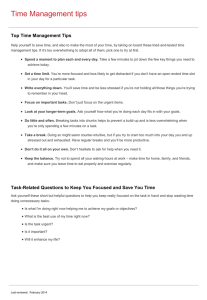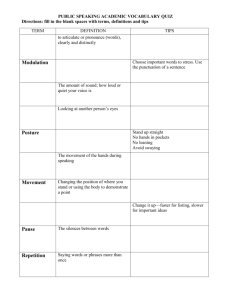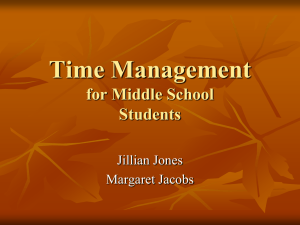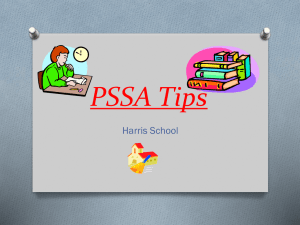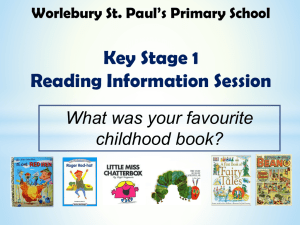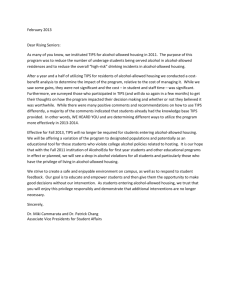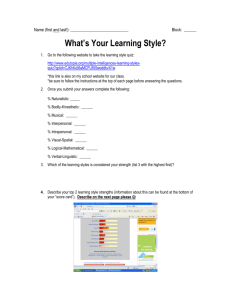Stress presentation
advertisement
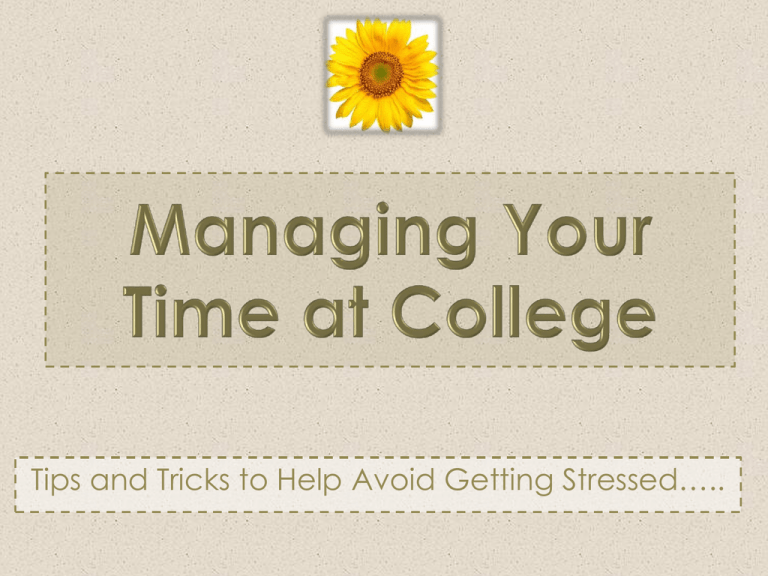
Tips and Tricks to Help Avoid Getting Stressed….. Learning Outcomes By the end of the session you should be able to: • Identify the physiological and emotional aspects of stress • Be able to recognise and apply practical tips and advice to alleviate stress • Relate the importance of time management to your own time at College • Recognise techniques to help you manage your time more successfully What Stresses Might You Have? • • • • • • • • • Exams Deadlines Returning to Study Pressure of combining paid work and study Difficulty in organising work Poor time management Debts Difficulties with personal relationships Balancing the demands of a family life Bad Stress We need some stress to get everyday things done. Too little can lead to boredom but too much can produce "burn out" When we perceive an event as stressful, our bodies react physiologically to it…. Heart rate speeds up Insomnia Blood pressure rises Low self-esteem Muscles tighten Irritability with others Panic Attacks Poor memory and concentration Loss of appetite/overeating Headaches Good Stress However, not all stress is bad! We each function best and feel best at our own optimal level of physiological arousal For instance, stress can help you meet daily challenges and motivates you to reach your goals. In fact, stress can help you accomplish tasks more efficiently. It can even boost memory! “Stress can motivate people, stretch them and enable them to learn” (Price and Maier 2007) How to deal with stress Everyone has their own methods of dealing with stress. You are all going to be given a post-it note. On this, write down a way in which you deal with stress. Tips to Deal with Stress • Exercise – this releases endorphins • Eat well • Relax! - Practice deep breathing, reflexology or yoga • Talk to classmates • Write a plan of action • Keep a note of what makes you stressed • Learn to say No! • Try not to worry about the future or compare yourself with others Time Management One way you can reduce stress at College is to manage your time effectively Think of the “3 P’s”... Planning Ahead Pacing Yourself Prioritisation Tips and Advice • Make a schedule – sometimes just writing things down makes them seem less daunting • Divide a task into smaller, individual (and more manageable!)tasks • Prioritise your work into most urgent through to least urgent More Tips and Advice • Make a timetable of when you can study – 40 minutes slots maximum! • Colour code! Try colouring a checklist or your notes pages. Often being organised helps calm the mind • Always make notes of references at the time Help! There are many, many tips out there on how to manage your time. So it’s important you find what works for you! There are a number of books available which can give you ideas. Why not have a look at one of these? Cottrell, S. (2008). Study skills handbook. 3rd ed. Basingstoke: Palgrave. McMillan, K. (2012). The study skills book. 3rd ed. Harlow: Pearson. Dawson, C. (2007). The mature student's study guide : essential skills for those returning to education or distance learning. Oxford: How To Books.


